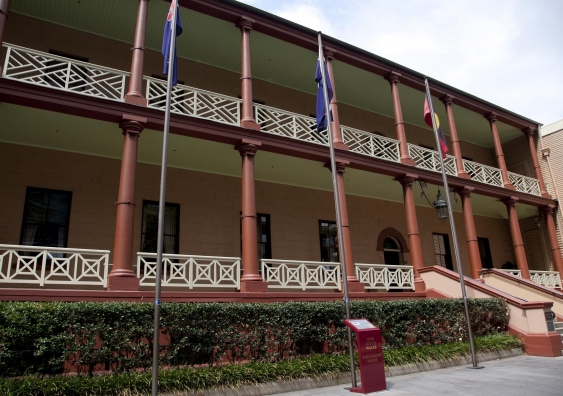Why NSW election laws can lead to corruption
The Baird government's expert panel on political donations has made it clear laws in place for the NSW March election campaign leave open the possibility for corruption, writes George Williams.
The Baird government's expert panel on political donations has made it clear laws in place for the NSW March election campaign leave open the possibility for corruption, writes George Williams.

The laws in place for the March NSW election are riddled with problems and leave open the possibility of corruption. This is made clear by the report of the Baird government's expert panel on political donations. The panel conducted an exhaustive inquiry into the state's political finance laws, and made 50 recommendations to prevent yet another round of ICAC hearings into how politicians fund their election campaigns.
These recommendations will not be in place for this NSW election. Indeed, there was never any prospect of this occurring because the government took many months to establish the expert panel, and then only asked it to report by December 31 last year. The report was well timed to ensure that the system could only be altered for the 2019 election.
With the state election now a few weeks away, the government has provided a full response to the panel's report. To its credit, it has agreed in principle with all but one of the panel's recommendations. In doing so, it has killed off the idea of banning political donations in favour of full public funding of elections.
Instead, the government has accepted that the current law, in placing limits on how much can be donated and how much can be spent on campaigns, should be tightened and improved. The changes include making it easier to prosecute offenders and requiring real-time disclosure of political donations of $1,000 or greater in the six months before an election.
On the other hand, the government has not accepted the recommendation that an independent body set how much public funding is granted for election campaigns and the administration of political parties. This is unfortunate, because it means that the state's politicians will continue to determine how much they and their political parties receive from the taxpayer. This involves an obvious conflict of interest, as indeed was shown in October last year when Parliament passed a special law greatly increasing public funding for the 2015 poll.
The expert panel also recommended reform of the state's political parties. Political parties are not subject to the same external oversight and checks and balances as other important organisations. This follows from the way they are constituted.
None of the Labor Party, Liberal Party or National Party are incorporated as a company or otherwise. Instead, each is merely a voluntary association, and so is not a legal entity. This has significant implications. The High Court found in 1934 that unincorporated political parties have the same status as private clubs.
This has frustrated most attempts to bring about external, independent supervision of the affairs of political parties. It is been difficult, sometimes impossible, to even require parties to comply with their rules in areas such as candidate selection. As a result, many aspects of the state's political parties lie beyond the reach of the law.
A lack of enforceable rules and an absence of other accountability measures means that political parties are prone to develop into individual fiefdoms. Key figures have been able to distribute power through patronage networks in return for favours. Such systems are open to corruption, and not surprisingly the same patterns of conduct have arisen in the representatives of those parties in state Parliament.
The expert panel stated that political parties should move from being private associations to public entities that can be prosecuted and made subject to penalties under NSW law. Senior officials would be required to report breaches of electoral funding law to the authorities. The affairs of the parties would also be subject to public scrutiny through having their use of public funds examined annually by the NSW Auditor-General.
These changes must be made. If nothing else, the community has a right to expect that political parties will comply with the same standards expected of other bodies that receive taxpayer money. Political parties should also be required to adhere to basic democratic principles, such as requiring fair and free processes for the preselection of their candidates, and governance procedures that ensure internal disputes are properly resolved.
The Baird government has accepted these reforms but at this stage only "in principle". This is a positive start but is still a long way from a commitment to enact the changes into law. Indeed, if it wins the election, the government has not promised to introduce legislation to do this, only to subject the proposals to further reviews and a parliamentary inquiry.
A cynical person would suggest that this will provide a re-elected Baird government with an opportunity to water down these changes once public attention has shifted elsewhere. We can only wait and hope that whoever wins government takes the necessary steps to break the cycle of wrongdoing resulting from the financing of NSW election campaigns.
George Williams is the Anthony Mason Professor of Law at UNSW.
This opinion piece was first published in the Sydney Morning Herald.